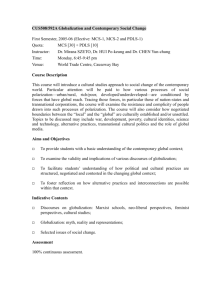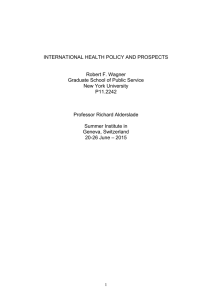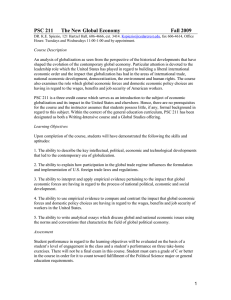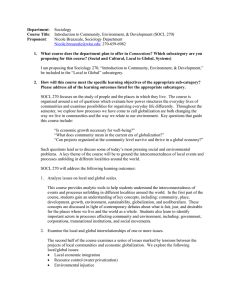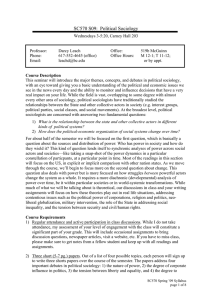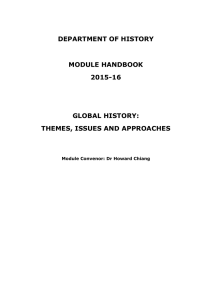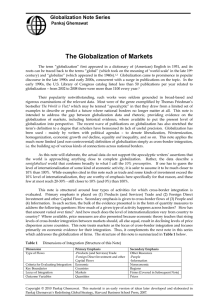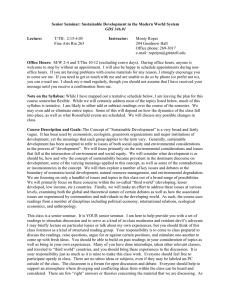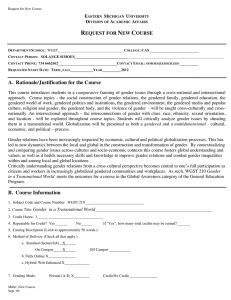INTERNATIONAL STRATEGIC MANAGEMENT Purpose of the course
advertisement
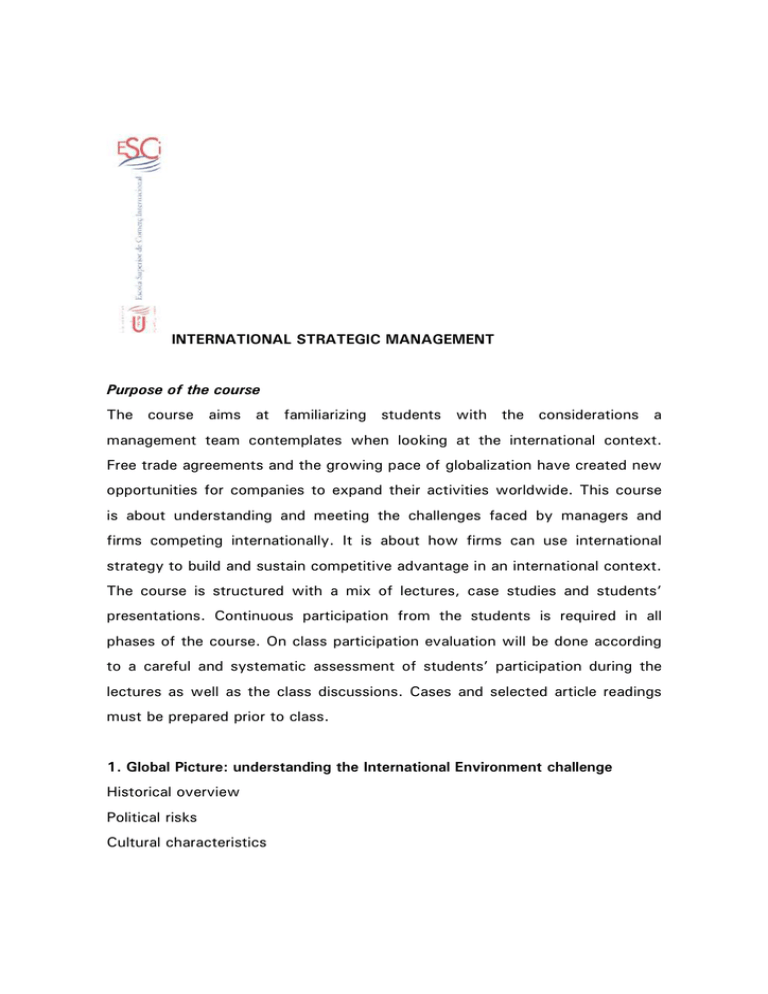
INTERNATIONAL STRATEGIC MANAGEMENT Purpose of the course The course aims at familiarizing students with the considerations a management team contemplates when looking at the international context. Free trade agreements and the growing pace of globalization have created new opportunities for companies to expand their activities worldwide. This course is about understanding and meeting the challenges faced by managers and firms competing internationally. It is about how firms can use international strategy to build and sustain competitive advantage in an international context. The course is structured with a mix of lectures, case studies and students’ presentations. Continuous participation from the students is required in all phases of the course. On class participation evaluation will be done according to a careful and systematic assessment of students’ participation during the lectures as well as the class discussions. Cases and selected article readings must be prepared prior to class. 1. Global Picture: understanding the International Environment challenge Historical overview Political risks Cultural characteristics International trade theory 2. Global Management and Competitiveness: understanding International Strategies Why do companies go global? Globalization and localization International strategic alliances and cooperative agreements Does distance still matter? 3. Global Organizational Forms: understanding how to structure your operations Toward internationalization Multinational, global, and international companies Developing Coordination and Control The transnational corporation 4. Global Strategic Decisions Cross-border mergers and acquisitions 5. Global Challenges International marketing International Human Resources Management Managing conflicting Stakeholders’ pressures A Sustainable Development perspective Emerging markets Bibliography Suggested Readings: Hill, Charles: International business: competing in the global marketplace Irwin Publisher Bartlett, Christopher and Ghoshal, Sumantra.: Transnational management: text, cases, and readings in cross-border management. International Student Ed. Popular reading books on globalization Friedman, Thomas: The world is flat: A brief history of the twenty-first century. Farrar, Straus and Giroux. Stiglitz, Joseph: Making globalization work. W.W. Norton. Stiglitz, Joseph : Globalization and its discontents. W.W. Norton. Porter, Michael: On competition. Harvard Business School Press: Boston. INTERNATIONAL STRATEGIC MANAGEMENT Grading Policy The course grades will be determined on the following basis: Class participation* 25% (15% class participation + 10% groups presentations) Midterm exam 25% Final exam 50% Class participation will be based on individual grading based on participation of each student in class during the whole term. It will be then adjusted with the group presentation. All students start from zero. The class participation marks are not given for free, but they must be gained during the class. Grading Policy in September: Continuous Evaluation 25% Final Exam 75%

